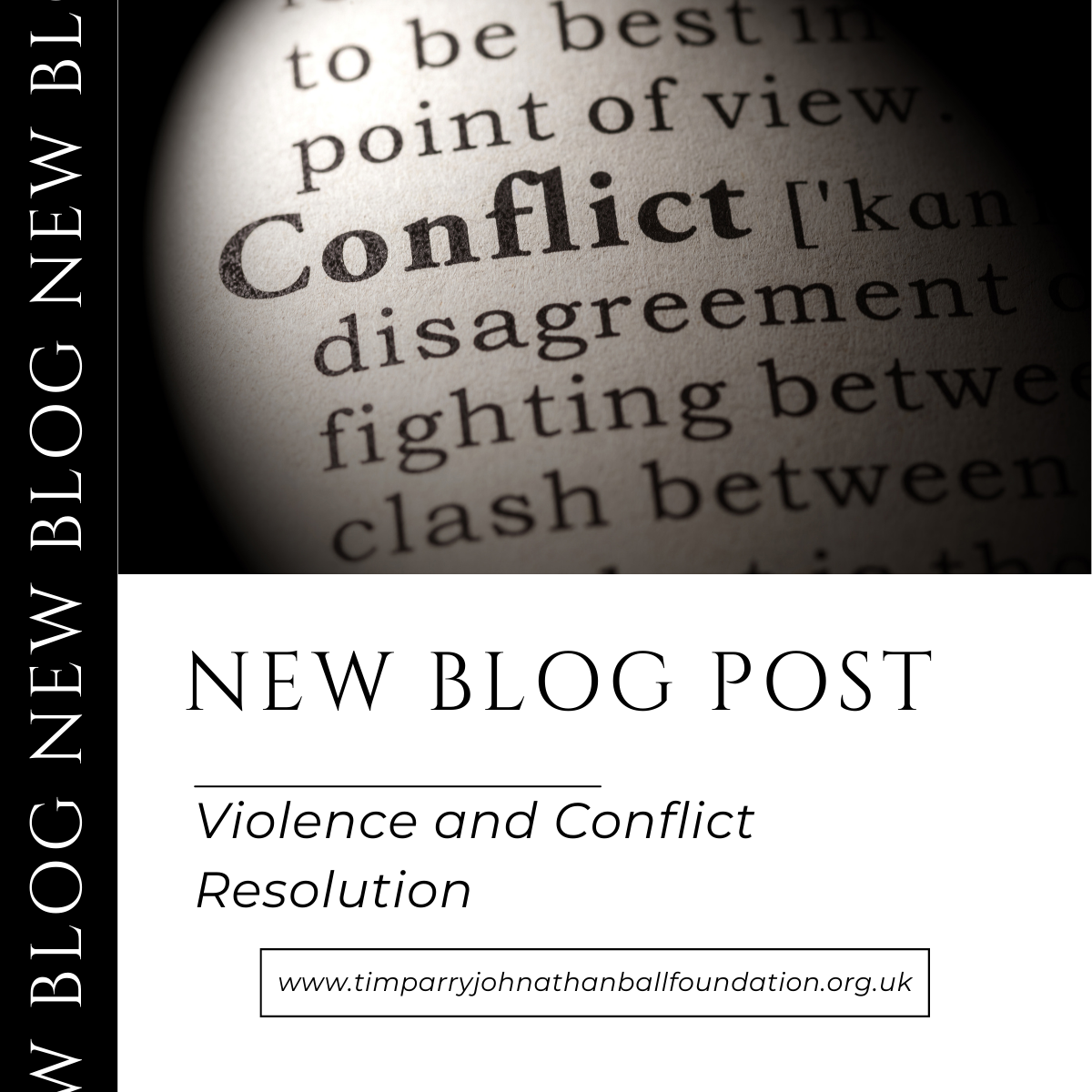
Violence and Conflict Resolution
Conflict comes in many forms, from low-level domestic arguments and public disputes to the use of physical violence witnessed increasingly often in quiet neighbourhoods and on our streets. Of greatest concern is the increased use of deadly weapons, such as knives and guns, leading to serious, life-threatening injuries and death.
Whatever the underlying causes, violence arises from unresolved conflicts.
When disagreements and disputes are not addressed through peaceful means, they will, often, escalate and lead to violent action. When conflicts are not resolved effectively, the risk of violence escalates.
Today, acts of crime kill more people than political conflict. Organised crime gang violence has accounted for almost half a million people worldwide being killed the UN has reported.
For women and girls, the home remains the most dangerous place. Women bear the heaviest burden of lethal victimisation, often because of misogynistic beliefs, inequality, and dependency.
While violent terrorism will always be a concern for national governments and international agencies, it has reduced in recent years, primarily due to governments’ increased counter-terrorism activities which have prevented the spread of violent extremism.
However, unresolved conflict situations are the primary driver of terrorism, with more than 99% of all terrorist-related deaths occurring in countries with endemic conflict and high levels of political terror. So, while terrorism-related deaths have fallen dramatically in recent years, the number of incidents has increased, with a sizable number of attacks carried out by actors with far-right, white nationalist, or anti-muslim beliefs.
Extremist groups use propaganda through the Internet to attract, recruit and incite disaffected individuals, and to acquire weapons and process unregulated money transfers.
Achieving Conflict Resolution through:
- Negotiation: Parties engage in discussions to reach an agreement by finding common ground.
- Mediation: A neutral third party helps facilitate communication and guide the conflicting parties toward a resolution.
- Arbitration: All parties to a dispute agree to a neutral third party making a binding decision to settle the dispute.
- Diplomacy: Governments and international organisations engage in negotiations to prevent or resolve conflicts between nations.
- Peacekeeping: International organisations deploy peacekeeping forces to monitor and stabilise conflict zones and support peaceful resolutions.
Promoting Conflict Resolution and Reducing Violence through:
- Education and Awareness: building understanding, empathy, and respect for diversity to help prevent conflict.
- Open Communication: using dialogue and communication to foster understanding and resolve misunderstandings before they escalate.
- Inclusive Decision-Making: Involving all stakeholders in decision-making processes to lead to sustainable and acceptable solutions.
- Addressing Root Causes: Identifying underlying issues that contribute to conflicts, such as poverty, inequality, or discrimination.
- Legal and Institutional Frameworks: Legal systems and institutions can provide a framework for resolving conflicts and providing justice.
Effective conflict resolution is the only means of preventing and/or reducing violent conflict. Peaceful dialogue identifies and resolves the underlying issues of conflict, enabling conflicting parties/societies to develop real and lasting cooperation.Top of Form
Prevention and intervention
Schools and Education
Tim Parry Johnathan Ball Foundation designs and delivers educational programs and training on conflict resolution and extremism awareness. We do this through school assemblies, class discussions, small group work, or on a 1-2-1 basis with specific students so that we give individuals the knowledge and skills to promote peace, challenge extremism, and foster cohesion.
Non-Formal Education:
The Foundation uses non-formal/non-curricular prevention education, to equip individuals with critical thinking, emotional awareness, and conflict management skills. By overcoming individual frustrations and social isolation, we promote empathy, respect for others, and real communication, challenging distorted beliefs and negative attitudes propagated within communities.
Community Cohesion:
The Foundation builds social bonds and alternative support networks to end isolation and alienation.
Promoting Positive Development:
We expose the underlying factors causing social exclusion, such as inequality, limited education, and poor employment opportunities, and identify the conditions for inclusivity and equal opportunities for all in schools, youth groups, workplaces, and communities.
We promote empathy and foster personal development to build a more inclusive and peaceful society. By understanding the causes of criminal activity, we can collaborate with stakeholders to prevent, resolve, and respond to violent incidents. Positive partnerships challenge the threats to safety and build a society that values the rights and dignity of every individual.
To learn more about the Tim Parry Johnathan Ball Foundation and how you can get involved, please visit our website at www.timparryjohnathanballfoundation.org.uk or contact us at info@timjon.org.uk or call 01925 581231.

